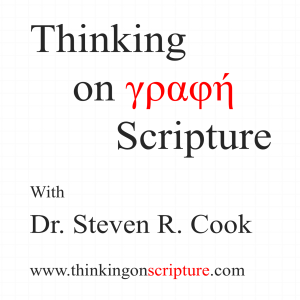
Saturday Jan 04, 2020
Haggai 1:1-15
God directed Cyrus the Great, king of Persia, to support the return of 50,000 exiled Jews from Babylon to Jerusalem, as well as the rebuilding of the temple, which began in 536 B.C. (Ezra 1:1-4; Isa 44:28). The Jews built the altar and laid the foundation (Ezra 3:1-13), but got discouraged and ceased construction after experiencing persecution from local Samaritans (Ezra 4:1-5, 24; 5:16). For the years that followed, self-interest took priority over divine-interest, as Israelites spared no expense for their own properties, while maintaining a sparing attitude toward the work of the Lord (Hag 1:3). Finally, after sixteen years, God raised up Haggai (and Zechariah) to preach and motivate the returned exiles to finish what they’d started. He told them to “consider your ways” (Hag 1:5), and pointed out the failed state of their lives (Hag 1:6). Though they worked hard, God withheld His blessing, because they were pursuing self-interest above His will and were experiencing the curse specified in the Mosaic Law (Lev 26:18-20; Deu 28:22-24; 38-39). The Lord was revealing the connection between His house and their lives, both of which were in ruin and need of repair. After telling them a second time to “consider your ways” (Hag 1:7), God gave a very specific command, saying, “Go up to the mountains, bring wood and rebuild the temple, that I may be pleased with it and be glorified” (Hag 1:8). Then, for a second time, God explained there was a connection between their failed agricultural efforts (Hag 1:9a) and their failure to do His will, saying it was “Because of My house which lies desolate, while each of you runs to his own house” (Hag 1:9b). The Lord told them, “Therefore, because of you the sky has withheld its dew and the earth has withheld its produce. I called for a drought on the land, on the mountains, on the grain, on the new wine, on the oil, on what the ground produces, on men, on cattle, and on all the labor of your hands” (Hag 1:10-11). The Israelites responded positively to Haggai’s preaching, as Zerubbabel, Joshua, and the remnant of the people “obeyed the voice of the LORD their God and the words of Haggai the prophet, as the LORD their God had sent him. And the people showed reverence for the LORD” (Hag 1:12). To help encourage His people, the Lord told them, “I am with you” (Hag 1:3). There is a sense in which God is always with us and never leaves us; that is, His presence never departs. But there is another sense in which God is either with or against us, and this has to do with His blessing or discipline, which depends on our obedience or disobedience to His will. It is this latter sense that God would be with His people to help them do His will. This same encouraging language is employed throughout the Bible with Isaac (Gen 26:24), Jacob (Gen 28:15), Moses (Exo 3:12), Joshua (Deu 31:23) Gideon (Jud 6:16), Jeremiah (Jer 1:8, 19; 15:20), Israel as a nation (Isa 41:10; 43:5; Jer 30:11; 46:28), the disciples (Mat 28:20), and us as Christians (Heb 13:5). Haggai preached God’s Word, but it was the Lord who worked in the hearts of Zerubbabel, Joshua, and the remnant of the people as “they came and worked on the house of the LORD of hosts, their God” (Hag 1:14). Haggai tells us the work started three weeks later, “on the twenty-fourth day of the sixth month in the second year of Darius the king” (Hag 1:15). Why mention three weeks? It was harvest season and three weeks might have been required to bring in crops, or perhaps that was the time needed to organize the material for temple construction. Whatever the reason, the people responded positively to Haggai’s preaching and focused their attention on doing God’s will and rebuilding the temple.
No comments yet. Be the first to say something!